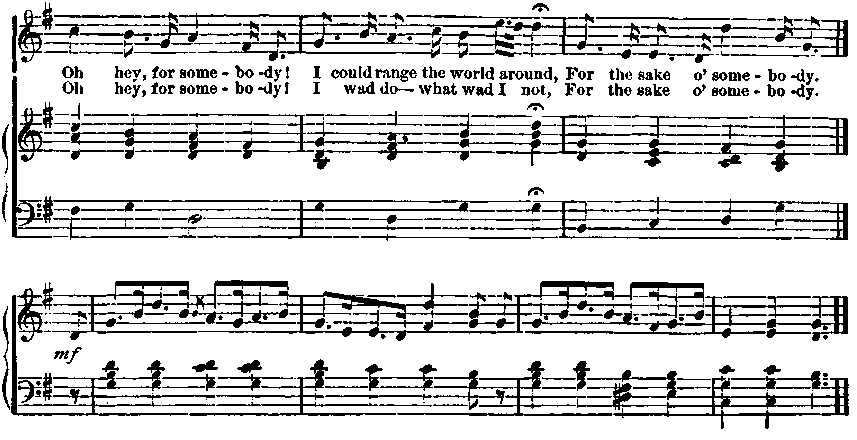Familiar Songs - Their Authors & Histories
300 traditional songs, inc sheet music with full piano accompaniment & lyrics.
| Share page | Visit Us On FB |
|
FOB THE SAKE W SOMEBODY. |
269 |
||
 |
|||
|
MAID OF ATHENS.
Lord Byron wrote these stanzas while in Athens. The lady who inspired them •was Theresa Macri, daughter of the English vice-consul, celebrated for her beauty. She afterwards married an Englishman named Black, who resided in her native city. In a note appended to the poem, Byron says: " The closing hue of each stanza, Zwi] /xou, aaq iyaxa), is a Komaic expression of tenderness. If I translate it, I should affront the gentlemen, as it may seem that I suppose they could not; and if I do not, I may affront the ladies. For fear of any misconstruction on the part of the latter, I shall do so, begging pardon of the learned. It means, ' My life, I love youV which sounds very prettily in all languages, and is as much in fashion in Greece at this day, as Juvenal tells us the two first words were amongst the Eoman ladies, whose erotic expressions were all Hellen-ized." He says the line in the third stanza which reads:
" By all the token-flowers that tell,"
refers to a custom in the East (where ladies cannot write), of exchanging sentiments by means of flowers.
Lord Byron was born in London, January 22, 1788, and died at Missolonghi, Greece, April 19, 1824.
The music for the "Maid of Athens" was composed by Isaac Nathan, who was born in Canterbury, England, in 1792. He was intended for the Jewish priesthood, and was carefully educated, but turned his attention to music, and soon became a favorite composer of both secular and sacred works. |
|||
 |
|||